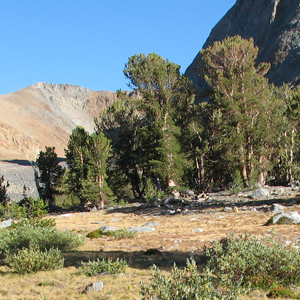
As the climate warms, plants and animals will need to move uphill to more hospitable climes, right? Some are — but it turns out that in other cases, the process seems to have shifted into reverse.
According to a new study published in the journal Science, some plants in Northern California are actually moving downhill in response to climate change. Aided by historical data, researchers from UC Davis and the University of Montana determined that between 1930 and 2000, many California species shifted downward an average of 260 feet.
The reason, according to UC Remote Sensing scientist Jonathan Greenberg, is increased precipitation, which, in some cases is overriding temperature as the main driver for species distribution.
“These wetter conditions are allowing plants to exist in warmer locations than they were previously capable of,” said Greenberg in a press release about the study.
NPR’s Richard Harris has more on the study and on what it could signal for California’s changing ecosystems.
